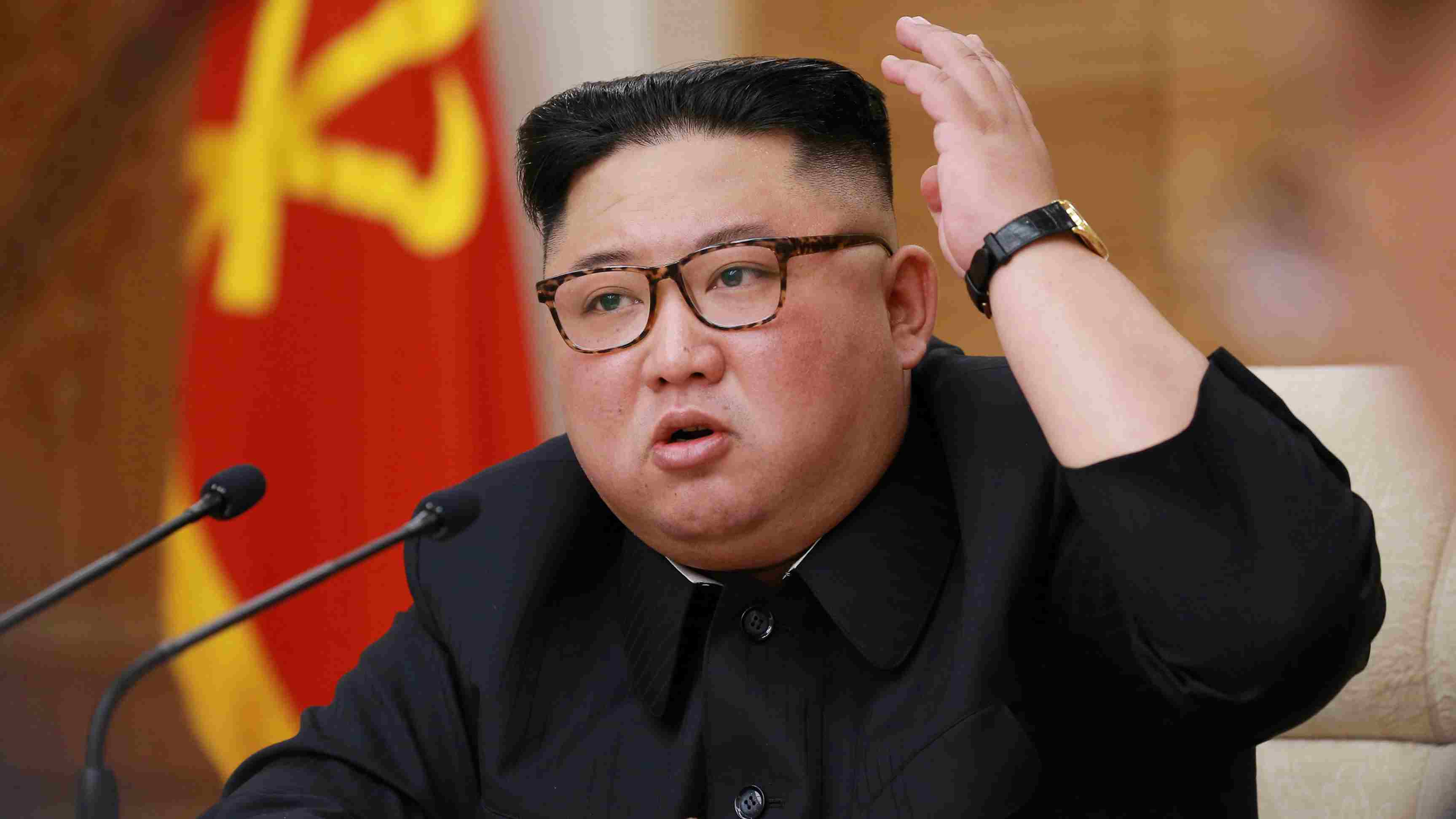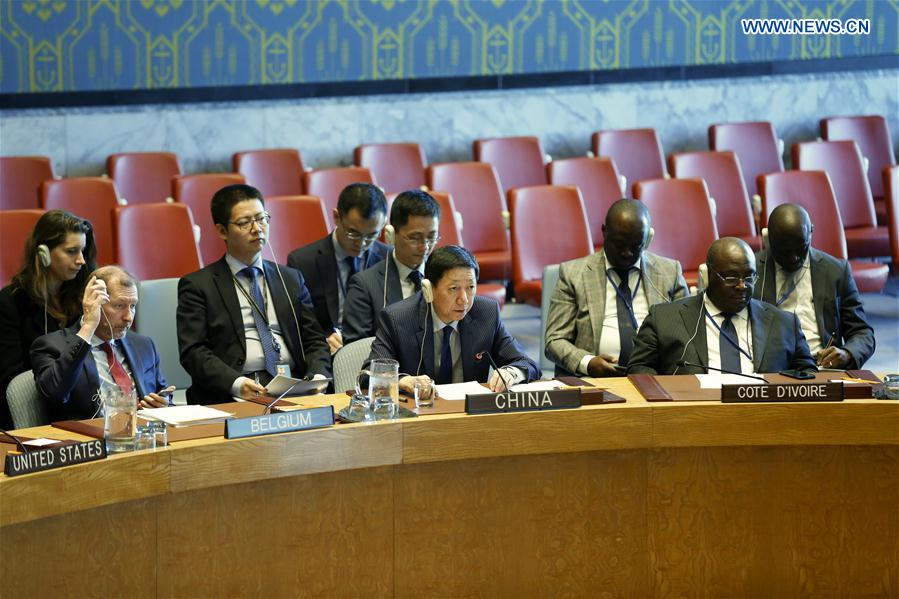
Opinion
15:20, 16-Apr-2019
A return to strategic patience? The 'New road' for the DPRK
Updated
15:34, 16-Apr-2019
Li Nan

Editor's note: Li Nan is an associate research fellow at the Institute of American Studies at the Chinese Academy of Social Sciences. The article reflects the author's views, and not necessarily those of CGTN.
The fourth Plenary Meeting of the seventh Central Committee of the Workers' Party of Korea (WPK) was held on April 10. Its top leader, Kim Jong Un was re-elected as chairman of the State Affairs Commission. Choe Ryong Hae was named President of the Presidium of the Supreme People's Assembly of DPRK, replacing Kim Yong Nam.
It marks the completion of power transition and indicates that Kim's leadership has been further consolidated. Chairman Kim saw the economic development as the core of his strategy. As the country is facing harsh sanctions imposed by the international community, he has made a clear statement that building a self-supporting economy will be a blow to the "hostile forces" that impose sanctions on the DPRK. During the meeting, the country shows to the world that it has a spirit of overcoming the hardship.
Actually, the DPRK is known to have been pursuing such a policy to reduce its dependency on the outside world for decades. Facing the harsh sanctions, the DPRK needs to address its shortages of energy and hard currency.
Along with the focus on “self-reliance” and low expectations regarding revenues from the outside, the DPRK puts an emphasis on technological innovation and educational improvement. The strategy may be in the right direction for the long run but it may not solve the current economic difficulties.
The year 2019 is the penultimate year of the country's Five-Year Development Plan. If a breakthrough cannot be achieved on the economic front this year, it will be hard to see the goals set in the plan fulfilled. Although the growth expectations on the tourism, the light and the agriculture industries will be moderately optimistic, the heavy industry, external economic cooperation, technological exchanges and trade activities will still be adversely affected by the sanctions.
In the first session of the 14th Supreme People's Assembly that convened on April 11, Chairman Kim made a policy speech. He mentioned that he is willing to hold a third summit with President Donald Trump as long as the U.S. offers acceptable terms for an agreement by the end of the year.

Wu Haitao, China's deputy permanent representative to the United Nations, speaks after the Security Council unanimously adopted a resolution to extend the mandate of the Panel of Experts that assists a DPRK sanctions committee of the council at the UN headquarters in New York, April 10, 2019. /VCG Photo
Wu Haitao, China's deputy permanent representative to the United Nations, speaks after the Security Council unanimously adopted a resolution to extend the mandate of the Panel of Experts that assists a DPRK sanctions committee of the council at the UN headquarters in New York, April 10, 2019. /VCG Photo
Moreover, he criticized the U.S. for making unilateral demands and said it should abandon such an approach. While he hailed his relationship with Trump, he would not like to see a repeat of the Hanoi summit in February. "In any case we will wait with patience for the U.S. courageous decision by the end of this year but it will clearly be tough to get such a good opportunity like last time." He said.
Chairman Kim may think that considering the election year in the U.S. is coming soon, Trump will be busy for the next year. Thus, he made “the end of this year” as the deadline. However, his remarks do not indicate that there will be any concession on denuclearization from the DPRK side. Kim said he doesn't have to be rely on a summit to obtain sanctions relief, and he would not hesitate to reach an agreement if the U.S. brings up an idea that is acceptable to both sides.
Kim's remarks signal that he will not pin all his hope on talks with the U.S. It also shows that the DPRK is ready for having strategic patience with the U.S. On the one hand, Kim is urging the United States to change its tough stance in nuclear talks by the end of this year. On the other hand, DPRK will not take any “provocative actions” against the U.S.
Since the Hanoi summit where there appeared a clear split between the two sides, the DPRK seems to have slowed down the pace on talks with the U.S.. “Wait and See” has become the strategy for the stage on the DPRK side.
For the U.S., the Trump administration has never shown a clear and unified voice toward DPRK. The State Department vows to keep the sanctions but is still open to talks with the DPRK.
In the White House, Bolton takes a hardline on the DPRK, pursuing a “Libya Model.” Trump said last week that the door for dialogue remains open and a summit "could happen." During a meeting at the White House with South Korean leader Moon Jae-in, however, Trump said now isn't the right time for inter-Korean projects including reopening a joint industrial park that has been kept shut because of sanctions. This has thrown bilateral relations into a quagmire.
Given that the stalemate has reappeared between the DPRK and the U.S., and neither side has lost the motive for the negotiation, Korean peninsula will go back to the past. Any imprudent act could lead to catastrophic results.
Fortunately, the relevant parties keep making efforts to maintain the current momentum for dialogue and help to facilitate negotiations between the two countries. The ROK designed a “good-enough deal” to bring the Trump and Kim together again. China is urging them to solve the issue through dialogue. With the DPRK's recent potential international engagement, including a summit with the leaders of the ROK and of Russia, the curtain that marks a new round of international cooperation and competition has been raised.
(If you want to contribute and have specific expertise, please contact us at opinions@cgtn.com)

SITEMAP
Copyright © 2018 CGTN. Beijing ICP prepared NO.16065310-3
Copyright © 2018 CGTN. Beijing ICP prepared NO.16065310-3